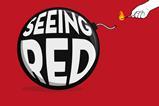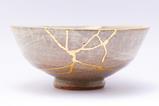On NHS Day, Patrick Regan says Covid has changed what our society values. Is it time for the Church to do the same?

The last 16 months have challenged our values like no other period I have known. Now is the time for us to ask the big questions of ourselves and each other: when so much has been stripped away, what is really important in our lives? What sort of individual do I want to be? What sort of society do I want to live in? Have my values been in the wrong place? As William Carey said: “I am not scared of failure; I am scared of succeeding at things that don’t matter.”
Simply put, what are our values? As individuals, as a church, as a society?
A footballer lies on the ground struggling for breath; suddenly football doesn’t matter. The health minister has an affair and the uproar is about the fact he broke Covid rules - which is bad enough - but what about the two families (especially the children) whose lives have changed forever?
Roots and shoots
Our education system is based on celebrating those who achieve the best grades, but what about the values of kindness, teamwork and integrity? Within a week of the start of the pandemic, jobs that were given very little recognition suddenly became our most important roles. We found ourselves clapping for carers every week - something that hadn’t happened prior to Covid.
As a church, have we sometimes been guilty of measuring success by numbers and the size of our building? We have had to ask the question: what are our priorities now that those things have been taken away?
My values don’t come from those around me but my pursuit of God
We think of success as what we do. But it’s not just what you do, it’s how you do it that is important. What are you for? Values give you a strong foundation from which to make key decisions. I like to think of values as the roots of trees. I want my values to go so deep that, whatever the storms of life, I know my values won’t change. Others refer to values as rocks you can cling to on a stormy sea, keeping your feet fixed on the ground. Values are the cornerstones to our lives. Values are chosen and active. They help shape the way you live your life. They are a way to keep asking the questions: What matters the most to me? What do I want to invest my time into and who with? Susan David says, “Your core values provide a compass that keeps you moving in the right direction.” I love that idea. Our values help us know the direction of travel, even if we are not always sure of the destination.
Measuring success
If you want to achieve success, you need to understand the metrics you are using. If one of your values is living in community but, due to the demands of a busy job, you don’t have any close connections locally, you’re not living out your values. Though that busy job may afford you a big house, a great car and fabulous holidays - all the things many people call ‘success’ - the reality is that you might feel more like a failure when measuring your achievements against your own values.
Values should determine your priorities and, deep down, they’re probably the measures you use to tell if your life is turning out the way you want it to. When the things that you do and the way you behave match your values, life is usually good – you’re satisfied and content. But when these don’t align with your personal values, that’s when things feel…wrong. This can be a real source of unhappiness.
Counter-cultural values
After surviving the Holocaust, Viktor Frankl wrote “We who lived in concentration camps can remember the men who walked through the huts comforting others, giving away their last piece of bread. They may have been in few in number, but they offer sufficient proof that everything can be taken from a man but one thing: the last of human freedoms – to choose one’s attitude in any given set of circumstances, to choose one’s own way.”
Your core values provide a compass that keeps you moving in the right direction
For me, my purpose and values don’t simply come from my life experience, my family upbringing or the influence of those around me, they come from my pursuit of my understanding of God. I believe the words of Jesus when he said that the most important things we can ever do are to love God with all our heart, mind and strength and to love our neighbour as ourselves (Mark 12:30-31). As a Christian, I want to align myself with Christ’s values, which are often counter-cultural. He says the weak are strong, and the humble, the meek and the marginalised should be prioritised. He values love, humility, sacrifice, honesty, mercy, justice, grace and community, all worked out in the messiness of real, human life.
Culture values productivity but Jesus calls us to rest in him and God commanded his people to have a Sabbath day of rest. Society tells us we should value financial security but Jesus tells to trust everything to God. Again, the Bible isn’t saying that productivity or financial security are wrong, just that we should look to God for our purpose and value first and foremost.
As a time of more uncertainty looms, I long to hold on to my values.





































